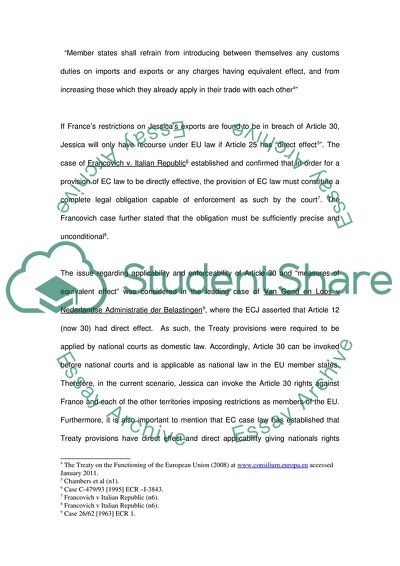Cite this document
(European Law Regulating the Free Movement of Goods Assignment - 1, n.d.)
European Law Regulating the Free Movement of Goods Assignment - 1. Retrieved from https://studentshare.org/law/1748010-european-law-assignment
European Law Regulating the Free Movement of Goods Assignment - 1. Retrieved from https://studentshare.org/law/1748010-european-law-assignment
(European Law Regulating the Free Movement of Goods Assignment - 1)
European Law Regulating the Free Movement of Goods Assignment - 1. https://studentshare.org/law/1748010-european-law-assignment.
European Law Regulating the Free Movement of Goods Assignment - 1. https://studentshare.org/law/1748010-european-law-assignment.
“European Law Regulating the Free Movement of Goods Assignment - 1”, n.d. https://studentshare.org/law/1748010-european-law-assignment.


